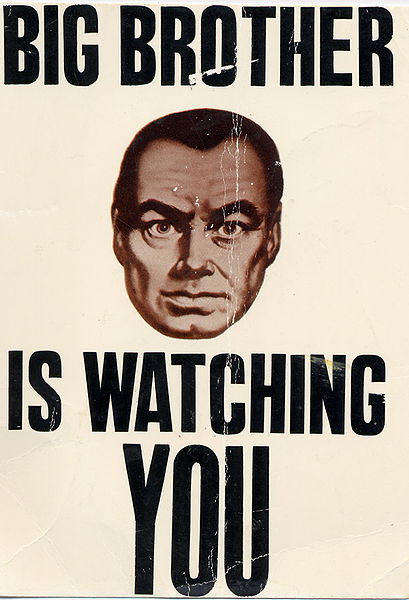Eric Schmidt, the former CEO of Google, caused a big stir when he remarked: “If you have something that you don’t want anyone to know, maybe you shouldn’t be doing it in the first place”. Connected to this: a friend recently asked me the question: If we would place camera’s everywhere that would track your every move continuously, as in George Orwell’s 1984, why would that be a problem, other than it making you feel uncomfortable? What are the rational arguments against constant nation-wide surveillance?
A good idea?
It might seem as if twenty-four hour surveillance everywhere is a good idea. Admittedly, security camera’s are often initially installed for good reasons: safety and security. The recordings can be used to prosecute criminals and perhaps even to detect situations about to spin out of control: a hot topic. Schmidt’s argument is really a variation on the old adagium: “if you are doing nothing wrong, you have nothing to fear”, right?
Wrong, apart from the technical issue of generating too much data to sort through, the more important ethical problems are the topic of George Orwell’s 1984: it’s all about who controls the information that is collected and the potential for misuse. For those not familiar with the book, the origin of the term Big Brother: it is about a dystopian society of which all members are under constant surveillance, even in their own homes. The government controls, and heavily censors, the flow of information to all citizens even rewriting history, and also dictates not only what constitutes acceptable behaviour, but goes as far as punishing people for what they think: thoughtcrimes. Some parallels with this are also in Philip K. Dick’s short story Minority Report, which has a well known film adaptation. Science fiction apart: history is full of people with good intentions that become corrupted, so it would be rather naive to believe such scenarios will not unfold in reality.
Data and Information
Some years ago I was taught that data by itself has no meaning, it only acquires meaning when you interpret it which turns it into information. The collection of bytes that make up the Internet page you are looking at right now has no meaning without this particular part being interpreted by your browser as text and other parts as images, links, etcetera. This brings me to my main argument: recorded data with an innocent interpretation today, may not be be viewed as such tomorrow. There is ongoing debate as for how long data should be retained, and the benefits of doing so. Keep it longer and you may catch more criminals, but you also open up the potential for unethical or even criminal use of that same recorded data. Misuse need not even be perpetrated by a totalitarian regime as in 1984: data can be stolen or leaked.
A former colleague has written his thesis about the topic of data retention and degradation in light of privacy. The simple fact remains: if something is not recorded anywhere, it can not be used and thus also not be misused. Security expert Bruce Schneier’s stance is that privacy is a basic human need stating that the debate is really about liberty versus control: “Privacy protects us from abuses by those in power, even if we’re doing nothing wrong at the time of surveillance.”
Cameras
Some rightly point out that security camera’s can provide a false sense of security. It can’t be denied that they discourage unlawful behaviour. However, they are a stopgap solution that does not solve the underlying problem of criminal behaviour, nor did the some 8000 surveillance cameras in London prevent riots. All the money spent on those eyes in the sky had perhaps better been invested in crime prevention and on real cops. While I applaud using modern technology for solving crimes, technology is not, and should never be, an end itself.
I have to say that it surprises me that people are happy nowadays to voluntarily transmit their exact physical coordinates in real-time to all kinds of services: apparantly cameras are evil, but no one appears to see a problem if something is packaged as a cute ‘helpful’ app. Obviously, the concern extends far beyond surveillance cameras alone. We can learn a valuable lesson from an old soul: “Any society that would give up a little liberty to gain a little security will deserve neither and lose both” – Benjamin Franklin.

